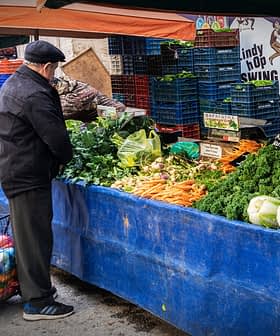Turkey’s olive oil producers are struggling under the weight of a temporary ban on bulk olive oil exports that the government introduced last year.
In August 2023, the Turkish government suspended bulk olive oil exports to rein in rising olive oil prices in the domestic market and to encourage the export of packaged olive oil, which sells at much higher prices than bulk olive oil.
The fear before the ban was that there would be a supply problem and not enough oil for the domestic market, but our new problem is excessive olive oil stocks.
The announcement came at a moment of rising demand across Europe for olive oil as many countries started what they expected to be another poor harvest season due to heat and drought.
The ban, originally scheduled to end in November but later extended indefinitely, has resulted in excessive stocks for farmers and millers due to an oversupply of olive oil from last year and the addition of oil from the latest harvest.
See Also:Tunisian Ag Minister Urges Sector to Take Advantage of Bumper Harvest“Turkey’s olive oil exports are mainly limited to bulk sales,” Serkan Yasser, an export specialist, told the Olive Oil Times. “The fear before the ban was that there would be a supply problem and not enough oil for the domestic market, but our new problem is excessive olive oil stocks.”
However, the temporary restrictions achieved the goal of stabilizing domestic olive oil prices to a certain degree.
Although the price of olive oil increased by 149 percent, prices have declined. Before the ban, the retail price was 230 to 300 Turkish lira (€7.75 to €10.11) per liter, but it climbed to above 500 to 600 lira (€15.88 to €19.06) for certain brands before retreating back to around 400 lira (€11.54) in the past month.
Olive oil producers had 150,000 tons of olive oil stocks from the 2022/23 crop year, in which the country produced a record-breaking 421,000 tons of olive oil.
The latest harvest, during which a far more modest 180,000 tons of olive oil was produced, has added to this. Some producers estimate that after domestic sales, there will be around 200,000 tons left over.
In a November interview with Olive Oil Times, Mustafa Tan, the president of Turkey’s National Olive and Olive Oil Council, said Turkey was well poised to capitalize on Europe’s olive oil deficit and could supply bottlers in Spain and Italy, desperate to find olive oil and fulfill export contracts.
Meanwhile, producers and some sector observers complained that the ban – the third one in as many years by Turkish authorities – hurt the reputation of Turkish companies as reliable export partners.
According to data gathered by the United States Department of Agriculture, Spain was the leading destination for Turkish olive oil exports from November 2022 to June 2023, followed by the United States, Saudi Arabia, Japan and Israel.
Still, Yasser believes these measures encourage more producers to focus on more labor-intensive but also more profitable individually packaged exports.
“Because of these export restrictions, producers have relied on selling packaged products,” Yasser said.
As a result, packaged olive oil exports, which were already gaining momentum, increased by five percent. According to the Ministry of Agriculture, packaged olive oil exports increased by three percent by volume before the ban.
This trend – which can also be seen in the rising number of submissions and awards for Turkish producers at international quality competitions – will likely continue as Turkey improves the quality of its packaging.
“Turkey’s olive oil quality is already high,” Yasser said. “Production techniques are improving every year, and producers are becoming more conscious of quality.”
“To maintain quality, the temperature of warehouses and tanks is kept at a certain level with air conditioning systems,” he added. “In this way, the product does not lose quality. Warehouses are also shielded from direct sunlight, and all tanks are sealed to prevent oxidation. However, keeping large quantities of olive oil stocks for too long may affect the good quality we have.”
The temporary ban is expected to be lifted after Ramadan, which ends in April. In the meantime, olive oil producers are offering products at a discount in a bid to deplete stocks.








